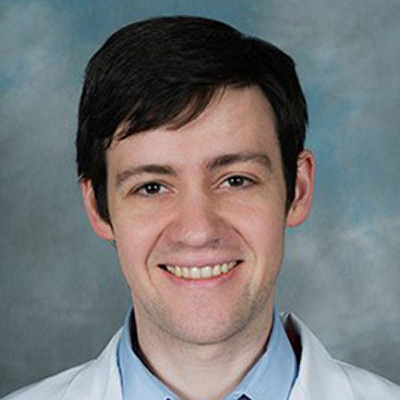Peter Pruitt, MD, FACEP
Research Forum 2026 Chair

Dr. Pruitt is an assistant professor of emergency medicine at the Northwestern University Feinberg School of Medicine. He received his medical degree from the University of Maryland, a Master of Science from Northwestern University, and completed residency training at the Brigham and Women's/Massachusetts General Hospital Harvard Affiliated Emergency Medicine Residency (HAEMR). This was followed by an Agency for Healthcare Research and Quality (AHRQ)-sponsored T32 fellowship in health services and outcomes research at Northwestern University.
Dr. Pruitt’s research focuses on improving processes of care for emergency department patients, especially those with neurologic emergencies. He has a related area of interest in patient risk stratification, especially the creation and validation of clinical decision tools. In 2018 Dr. Pruitt received the SAEM Foundation Research Training Grant for his work to create a clinical decision tool for patients with subdural hematoma and preserved consciousness. He currently studies the interhospital transfer process with support from AHRQ.
James H. Paxton, MD, MBA, FACEP, FAHA
Research Forum 2027 Chair

Dr. Paxton is an Associate Professor and Director of Clinical Research for Detroit Receiving Hospital / Wayne State University Department of Emergency Medicine, and has served as core academic faculty for the EM residencies at both Sinai-Grace Hospital and Detroit Receiving Hospital since 2011. He received both his MD and MBA degrees from the University of Cincinnati (Cincinnati, OH), and completed EM residency training at Henry Ford Hospital (Detroit, MI). He is an active clinical researcher and has served as PI for numerous industry- and publically-funded trials. He is the editor of several books on emergency medicine topics, and is a recognized expert and invited speaker for many regional, national and international lectures on emergent vascular access, stroke, cardiac arrest, and other resuscitation topics.
Patrick Maher, MD, MS, FACEP
Research Forum 2028 Chair

Patrick Maher, MD MS is an Adjunct Associate Professor at the Mount Sinai Hospital, in New York, NY. He received his undergraduate degree from the University of Georgia in Athens, GA, and his Medical Degree from Georgetown University School of Medicine in Washington, DC. He then went on to complete his Emergency Medicine specialty training at the University of Washington, in Seattle, where he also completed a Critical Care Medicine fellowship. After his clinical fellowship, Dr. Maher joined the faculty at Mount Sinai through the EM Research T32 program funded by the NIH / NHLBI. As part of this program, he obtained a Master of Science in Biostatistics from Columbia University Mailman School of Public Health. At Mount Sinai, he co-chaired the hospital CPR Committee and served as head of the Mount Sinai Hospital EM-CCM Division, leading a group of attendings with similar fellowship training in Critical Care Medicine. He currently works in both Emergency and Intensive Care in San Jose, CA.
Margaret Greenwood-Ericksen, MD, MSc
Research Forum 2025 Chair

Margaret Greenwood-Ericksen, MD, MSc is an Assistant Professor of Emergency Medicine at the University of New Mexico with a secondary appointment in Psychiatry and Behavioral Sciences Department. She is an emergency physician and health services researcher whose career is focused on transforming the structure of rural healthcare delivery to improve outcomes for vulnerable communities. Her research explores rural emergency care delivery models and associated outcomes to identify disparities and inform policy-level interventions. She has a particular interest in Medicaid policy and behavioral healthcare delivery to rural communities.
She completed her Master’s at the National Clinician Scholars Program at the University of Michigan following her residency training at the Harvard Affiliated Emergency Medicine Residency (HAEMR) Program. She is the past-president of the New Mexico ACEP Chapter, and served as ACEP’s representative to the National Quality Foundation’s committee for Rural Health Quality Measures. Within her Department, she serves as the Junior Faculty Representative to Senior Leadership and spearheaded the Clinical Scholars Research Program, a departmental research award which supports junior faculty seeking to become physician-researchers.
She is deeply invested in efforts to improve New Mexican’s health through innovations within Medicaid policy, mental health access, and opioid treatment. She is currently funded through New Mexico’s State Opioid Response (SOR) grant, awarded by SAMHSA, through which she is the Director for Outreach and Dissemination for the NM Bridge – a statewide program supporting hospitals and ED’s in initiation of Medications for Opioid Use Disorder programs. Within the Department of Psychiatry and Behavioral Sciences, she has an affiliation with the Center for Behavioral Health Services Research and Evaluation (CBHTR), leading teams to conduct assessments of the state’s Medicaid mental health and substance use policies. She has developed rural-specific curriculum for quality improvement and was a founding member of Project ECHO’s First Responder Resiliency ECHO which addresses the mental health needs of emergency medicine workers in rural communities. She has ongoing collaborations with the University of North Carolina’s Rural Health Research Program to inform implementation of the Centers for Medicare and Medicaid Services’ new rural healthcare payment and delivery model, the Rural Emergency Hospital. She is published broadly across rural health care delivery, rural health disparities, and rural emergency care outcomes and has received grant funding from the Emergency Medicine Foundation as well as UNM’s Clinical Translational Science Center.





